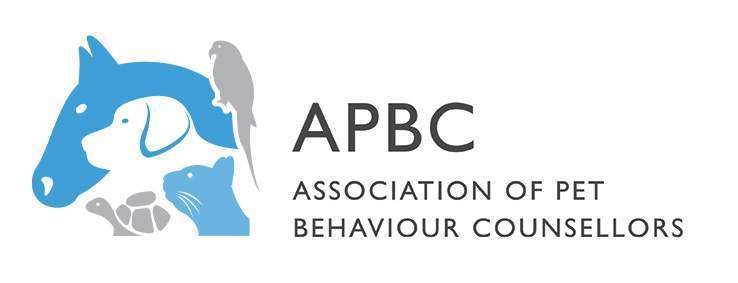APBC VIRTUAL CONFERENCE
Event Details
APBC CONFERENCE 2020- ONLINE VIRTUAL CONFERENCE TICKET sales are now closed APBC Virtual Conference 2020 Sponsors:
Event Details
APBC CONFERENCE 2020- ONLINE VIRTUAL CONFERENCE
TICKET sales are now closed
APBC Virtual Conference 2020 Sponsors:




This full day of quality CPD will consist of presentations from six speakers who will explore a specific topic, review its most recent scientific findings, and finally describe how they put those findings into practice. Concepts to be covered include: the human psychology behind some animal behaviour issues, puppy development and behaviour, the journey through rescue, fear and anxiety in dogs, understanding and interpreting body language and behaviour, and animal welfare. The day will provide a chance for professionals to delve deeply into issues that affect our animals and our work to help them.
Behaviour counselling: from principles to practice
Sunday 7th June 2020
Speakers:
- Puppy education: principles to practice with Gwen Bailey
- Handling and body language: Hannah Donovan
- A dog’s rescue journey – the science of shelter behaviour with Tom Candy BSc (Hons), MSc, CDBC
- ‘I love him like my child, he’s my lad’ – human attachment, parenting and empathy, what do they mean for practice? with Dr Anne McBride, University of Southampton
- Fear and Anxiety (Drax as case study of applying science) with Natalie Light, Clinical Animal Behaviourist
- Beyond the Five Freedoms with Suzanne Rogers, Animal Welfare Consultant Consultant
Puppy education: from principles to practice
Gwen Bailey, Puppy School
Foundations set during the first year of a dog’s life are critical, and deserve a focus that is both practical and scientific. Gwen Bailey will look at some of the essential tasks for raising a well-behaved dog and see where science can help us be better owners and counsellors.
Gwen Bailey pioneered the use of animal behaviour knowledge in the rehoming of unwanted pets while working for a large animal welfare charity where she was Head of Animal Behaviour for 12 years. In June 2002, Gwen set up Puppy School (www.puppyschool.co.uk), a UK network of puppy class tutors trained in animal behaviour and offering socialisation and reward-based training classes run to a very high standard. Puppy School has helped introduce positive training into the lives of 80,000 puppies since it started with over 150 Schools around the UK and Ireland. Gwen has written 14 books, one of which, ‘The Perfect Puppy – how to raise a dog you can live with’ has sold millions around the world and has been in print for over 25 years. She is currently a member of the APBC Interim Committee and was past Chairman of the APBC and past Trustee for Battersea Dogs and Cats Home. She is President of the charity Dogs Helping Kids.

A dog’s rescue journey- the science of shelter behaviour
Tom Candy BSc (Hons), MSc, CDBC
All rescue dogs will have a journey through the organisations rehoming process. These journeys can be made up of multiple steps, Tom will discuss what science can teach us about improving a dogs journey and how we can apply this to the real world of rescue.
Tom Candy is a Senior Training and Behaviour Advisor for Dogs Trust in the United Kingdom. Tom is responsible for overseeing the training and behaviour at multiple rehoming centres across the UK. His duties include assessment, management and behaviour modification. A passion for animal welfare and training led Tom to undertake a BSc (Hons) in bio-veterinary science, and an MSc in clinical animal behaviour from the University of Lincoln, UK. Having started volunteering in rescue at the age of 15, Tom has been involved in a variety of aspects of rescue, including fundraising, home checks, transporting, and general day-to-day activities. Since graduating from University, Tom has been working as a training and behaviour advisor at a DogsTrust, locuming across 7 centres before moving to the senior training and behaviour team.
Tom is an accredited animal behaviourist with the Animal Behaviour and Training Council, and a Certified Dog Behavior Consultant and Chair of the Dog Division with the International Association of Animal Behavior Consultants.

I love him like my child, he’s my lad’ – human attachment, parenting and empathy, what do they mean for practice?
Dr Anne McBride, ABTC CAB, University of Southampton
Drawing from relevant research, this talk will provide a brief introduction to attachment, empathy, narcissism and parenting styles and how these may influence owner behaviour and in turn how practitioners can support owners towards a successful outcome.
Anne is an Animal Behaviour and Training Council recognised Clinical Animal Behaviourist. She has been practising since 1987. She was director of the first UK University based course in the field which ran at Southampton University from 1994 – 2015. Her main goal in life is to engender in others the ability to be creative, yet critical thinkers. She feels this is essential if knowledge of human and animal behaviour is to be applied to the welfare improvement of all. Her second goal is to grow old whilst never truly growing up, and continue learning and laughing all the way!

Building foundations of trust, safety and confidence: A case study of Drax’s galactic adventure
Natalie Light BSc PGDip PGCert CCAB
The theoretical principles of the ethological needs of dogs will be discussed, with a particular focus on physiology & safety as the primary considerations when working with rescue dogs, particularly those that have experienced neglect or trauma. Using the case study of an ex-puppy farm Irish Wolfhound (Drax), the practical applications of desensitisation and counter conditioning protocols will be explored. What works, what doesn’t, and the key priorities to consider when settling dogs into their new homes will be presented using a series of videos that document the first 6 months of Drax’s time in his new home.
Nat is an Association for the Study of Animal Behaviour (ASAB) accredited Certificated Clinical Animal Behaviourist, an Animal Behaviour & Training Council (ABTC) Registered Clinical Animal Behaviourist and Animal Training Instructor and a full member of the Association of Pet Behaviour Counsellors. She has been working professionally in the companion animal sector since 2006 and graduated from Southampton University with a Zoology BSc (2:1) and Newcastle University with Applied Animal Behaviour & Welfare PGDip (Distinction). As well as running her busy behaviour business for private clients, is a lecturer on the Animal Welfare & Society BA at University of Winchester and is currently writing her thesis for her PhD entitled “Servant to sentience: A historical exploration of the changes in popularity and implementation of pet dog training in Britain from 1970 to 2010 as documented in the UK Kennel Club archive”. Nat’s aim as a behaviourist and trainer is to provide her clients with the understanding, knowledge and practical skills to confidently identify, manage and encourage desired behaviours in order to have a safe and happy life with their dog. She believes that by focussing on the dog/human relationship and encouraging effective and appropriate communication, we can live with our dogs more successfully.

Handling and Body Language – How can we improve an animal’s experience of the veterinary environment?
 Dr Hannah Donovan BSc (Hons) BVM&S MVetSci MSc MRCVS RCVS Advanced Practitioner in Companion Animal Behaviour
Dr Hannah Donovan BSc (Hons) BVM&S MVetSci MSc MRCVS RCVS Advanced Practitioner in Companion Animal Behaviour
Finding a balance between theory and real-life can be challenging. Science-based knowledge on body language and our inferences of the underlying emotional motivations can help us to adapt our behaviour towards our patients and improve interactions. Within a veterinary setting, there is always a sense of urgency and time pressure, to get a job done. In this talk we will look at how we can best interpret our patients’ emotional states and therefore, mental health, how to respond to each individual and how to still manage procedures within the veterinary working day.
Hannah Donovan is a veterinary surgeon and a clinical animal behaviourist, shegraduated with a 2.1 Bachelor of Science Honours degree (BSc (Hons)) in Animal Science from the University of Leeds, UK, in 2006. She then went on to study for her veterinary degree, Bachelor of Veterinary Medicine and Surgery (BVM&S) at the University of Edinburgh, UK, and qualified as a vet in 2011. During her time at the University of Edinburgh, Hannah also obtained a Masters of Veterinary Science in Canine Behaviour Research (MVetSci). She then worked as a mixed vet in Lincolnshire and during this time, completed a Master of Science in Clinical Animal Behaviour (MSc) at the University of Lincoln, UK, she graduated with distinction in 2013.
Since then, Hannah has worked in small animal practices in Hertfordshire and Bedfordshire, she has also travelled and volunteered around the world in clinics and shelters, and spent some time working in a large RSPCA hospital and shelter in Sydney, Australia. Hannah has worked as a veterinary surgeon since 2011 and has been seeing behaviour referrals simultaneously since 2013. Hannah has enjoyed providing continued education for vets and vet staff around the world about animal behaviour and how to improve handling and understanding during veterinary visits, rehabilitation of rescued animals or teaching young animals and preventing behaviour issues. Hannah’s aim has always been to improve animals’ quality of life and welfare by continually learning herself and teaching veterinary and shelter staff.
 Beyond the Five Freedoms
Beyond the Five Freedoms
Suzanne Rogers, BSc (Hons), CHBC
The most often cited framework for animal welfare is the ‘Five Freedoms’, created in the 1960s. However, since then welfare scientists have expanded the way we think about welfare now considering not only whether the animal is free from harm and suffering but if they have a life worth living with positive emotional experiences. In this talk Suzanne brings us up to date with ways of exploring welfare and links it to our work as behaviour counsellors.
After a varied career in science publishing, Suzanne re-qualified in behaviour and welfare, joined the trustee board of several animal charities and worked for the World Society for the Protection of Animals (WSPA; now World Animal Protection). Since 2011, Suzanne has worked as an international consultant for animal welfare and human behaviour change, working with many key organisations. In 2016 she co-founded Human Behaviour Change for Animals CIC and is now an animal welfare consultant specialising in applying the science of human behaviour change to the animal welfare sector. She is also active as an IAABC-certified equine behaviour consultant.
Please note: APBC and SPEAKERS CANNOT BE HELD RESPONSIBLE FOR ANY TECHNICAL FAILING IN THE RESULTING RECORDING. Purchases of live broadcast or recording are not refundable.
Time
Year Around Event (2020)(GMT+00:00)






